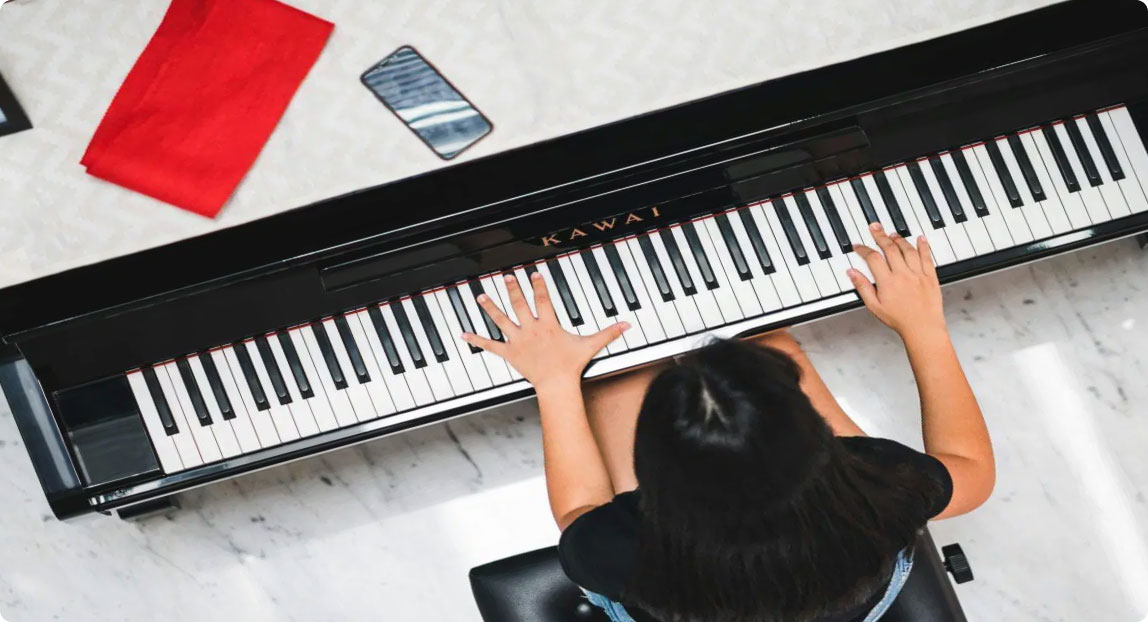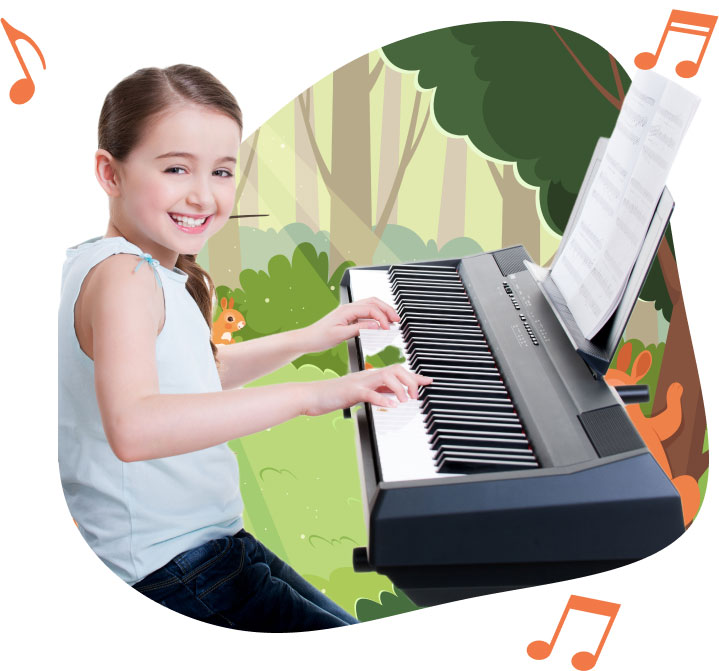
PLAY THE Piano
Master THE ART
Step into the enchanting world of the flute, an instrument celebrated for its ethereal tones and mesmerizing range, with our flute lessons tailored for those aged 7 and beyond. Immerse yourself in the art of this delicate woodwind, letting its melodies inspire and move you. Our classes emphasize not only foundational elements like posture, proper embouchure, and breath control but also the finer nuances of tone production and advanced technique to let you fully appreciate and harness the flute’s remarkable characteristics.
Posture is foundational when it comes to the flute. Considering the instrument’s horizontal alignment, maintaining an optimal posture ensures easy access to keys and a comfortable playing experience. Our seasoned instructors guide students meticulously to ensure they hold and balance the flute with grace and ease.
Proper embouchure is the key to unlocking the flute’s diverse tonal palette. With its unique side-blown design, the flute demands precision in lip positioning and shaping. Our seasoned teachers provide step-by-step guidance, molding students’ embouchure to produce sounds ranging from the sweetest pianissimo to the most commanding fortissimo.
Breath control is paramount for the flute playing, more so than many other instruments. Given the flute’s linear airflow and the player’s direct interaction with its mouthpiece, mastering breath control is essential. We integrate structured exercises into our curriculum, guiding students to maximize their airflow, creating sustained and beautiful tones.
Dedication to tone production forms the essence of our flute lessons. The flute’s wide tonal range, from hauntingly deep to sparklingly high, requires a deep understanding of its characteristics. We focus on harnessing the flute’s special ability to shift moods, from melancholic to joyful, all within a breath.
Underpinning all these is the technique — finger placements, articulation, and the transitions between octaves. Our curriculum is comprehensive, addressing every facet of flute playing, from the basics to advanced techniques like flutter-tonguing and multiphonics.
Embrace the magic of the flute with our lessons, and let its melodies weave stories, evoke emotions, and become an extension of your own voice.
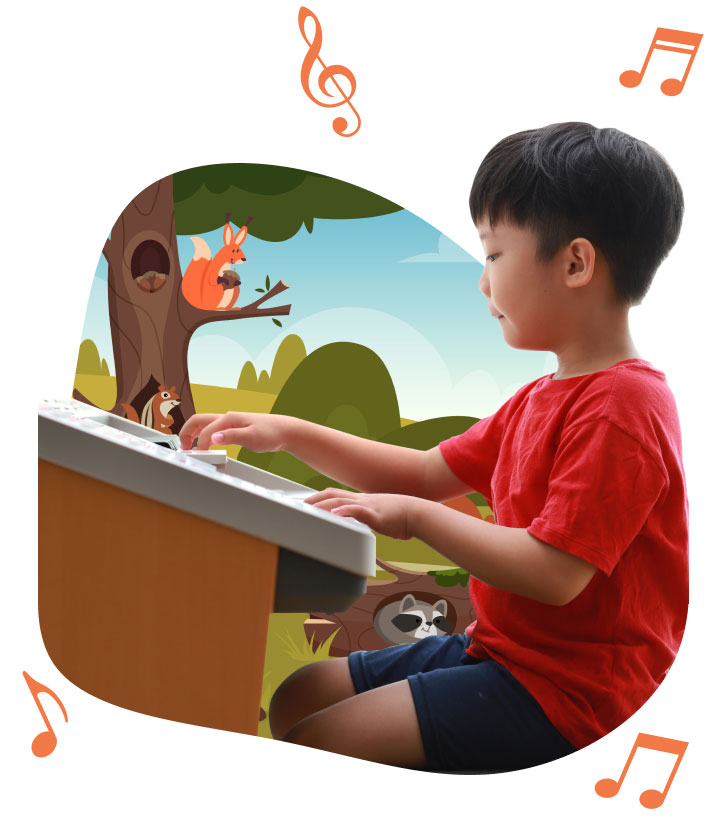
OUR Promise
-

dedicated & passionate
-

strong foundation
-

result driven
STUDENT’S Journey
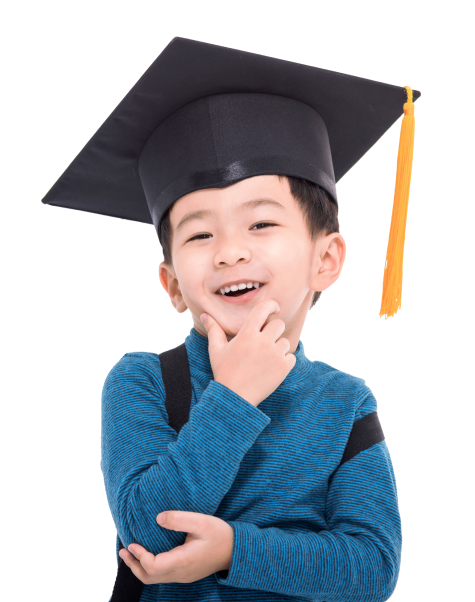
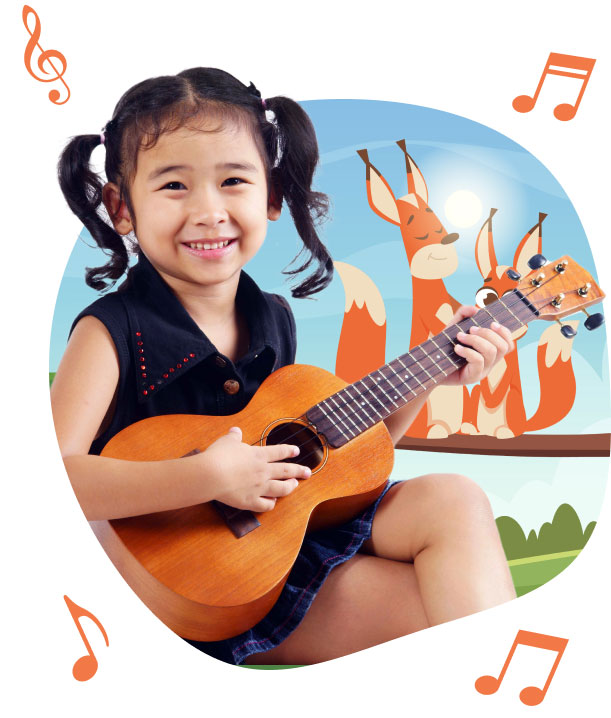
BOOK A Consultation
FREQUENTLY ASKEDQuestions
The cost of music lessons in Singapore can vary depending on the type and level of instruction. Private music lessons tend to be more expensive than group classes, as they offer more personalised instruction.
The price of music lessons also depends on the teacher’s qualifications and experience, as well as the type of music being taught.
In general, music lessons in Singapore can range from $50 per hour for basic instruction to over $100 per hour for advanced or specialised classes.
Singapore is home to many music schools, offering a wide range of music-related courses and programs.
According to statistics from the Ministry of Education, there are over 260 music schools in the country. These schools provide music education at all levels, from beginner classes for young children to advanced music theory and composition classes for adults.
Music schools in Singapore offer lessons in a variety of music genres, including classical music, jazz, pop music, and traditional music. Students can gain practical experience by participating in concerts or recitals held at the schools.
Learning piano in Singapore can be a rewarding experience and is an excellent way to pursue music. The cost of piano lessons varies depending on factors such as the teacher’s qualifications, location, and frequency of lessons.
Generally speaking, piano lessons in Singapore usually range from $50 to $200 per hour.
Those seeking more experienced teachers may pay a premium for lessons, but overall, piano lessons in Singapore are relatively affordable.
Music classes can be a great way for children to develop their musical skills and explore the world of musical instruments in a safe and educational environment.
Music classes can also improve concentration, collaboration skills, and self-confidence, as well as teaching music theory and providing exposure to different styles of music.
Additionally, music has been proven to have a positive effect on the brain and help with memory retention. Participating in music classes can provide numerous benefits for children and support their overall development.
When it comes to taking music classes, there is no single “best” age to learn. Ultimately, the best time to learn music depends on a variety of factors such as individual learning styles and abilities, availability of resources, and commitment level.
For younger children, around ages 3-6 may be an ideal age to learn music as they are developing their auditory and motor skills, which makes it easier for them to learn and remember. At this age, children tend to have more free time and energy to take on a new skill like learning an instrument.
The amount of time it takes to learn music depends on several factors, including the type of music you are learning and your individual abilities.
If you have prior experience with a musical instrument or knowledge of music theory, it can take less time to learn than someone who is starting from scratch.
Generally speaking, it can take anywhere from six months to a year to learn the basics of playing a musical instrument and reading basic music notation. After that, it may take years to learn more advanced techniques or become proficient in a specific style of music.
With dedication and practice, you can learn to play music in whatever amount of time is right for you.
Piano lessons can be a great way to develop your piano-playing skills and musical understanding. They provide an opportunity to work with experienced piano teachers who can help you progress in the best possible way.
Not only will they teach you proper piano technique, but piano lessons can also open up new musical possibilities and help bring out your creative side.



